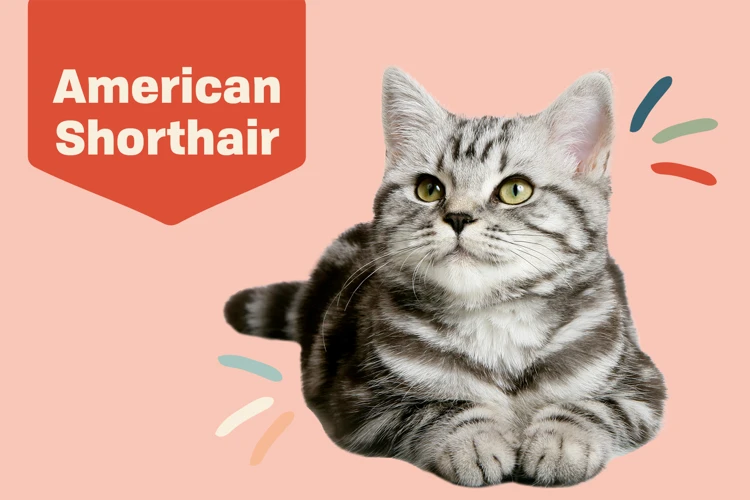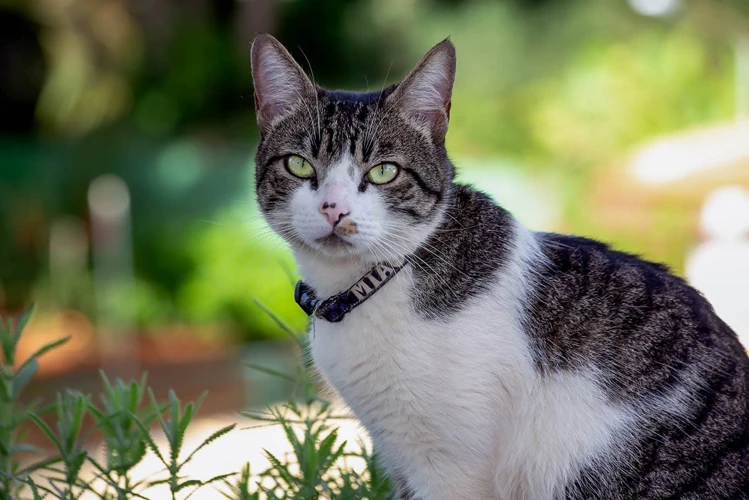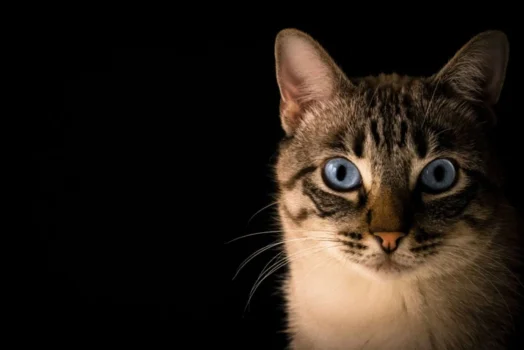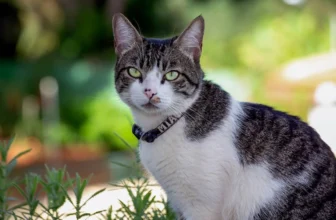As pet lovers, we always want to ensure the good health and well-being of our furry friends. This is especially true when it comes to our feline companions, like the American Wirehair kittens. We want to be sure that they are healthy and will not develop any illnesses or genetic diseases in the future. However, with so many breeders out there, it can be a challenge to find one that cares about the health of their kittens. In this article, we will explore the importance of health testing for American Wirehair kittens, common health problems that they face, and the questions you should ask your potential breeder to ensure that you adopt a healthy kitten.
The Importance of Health Testing

The well-being and health of American Wirehair cats is crucial for their quality of life and longevity. Before bringing a new furry companion into your home, it’s important to understand the importance of health testing in American Wirehair breeding. Without proper health testing, your American Wirehair kitten may be predisposed to genetic health issues that could have been identified and prevented at an earlier stage. In this section of the article, we will explore why health testing is a crucial component of American Wirehair breeding, common health problems to look out for, and what recommended health tests you should inquire about. To learn more about the importance of health testing in American Wirehair breeding, visit this link.
Why Health Testing is Important
Health testing is crucial for every cat, particularly for purebred cats like American Wirehairs. By testing the breeding cats for genetic health problems, breeders can minimize the risk of producing kittens with significant health issues. Health testing also allows breeders to identify carriers of specific genetic mutations, allowing them to selectively breed cats to avoid passing on these mutations.
But why is testing so crucial? There are many reasons. For starters, genetic health problems can be incredibly painful and can significantly decrease a cat’s quality of life. Many of these problems are also costly to treat, which can be a financial burden for pet owners. Health testing allows breeders to identify potential health issues before they arise, ultimately benefiting the cats’ long-term health and wellbeing.
In addition to benefiting the cats, health testing is also important for potential cat owners. It allows them to make informed decisions about the kittens they want to bring home. With health testing, potential owners can ensure that the cat they’re bringing home has the best chance at living a healthy, happy life.
Ultimately, health testing provides an added layer of security for both breeders and potential cat owners. By ensuring the health of breeding cats and their offspring, breeders can guarantee that they’re producing healthy kittens that will thrive in their new homes. And for potential owners, health testing gives peace of mind, knowing that the cat they’re bringing home is healthy and well-cared for.
| Reasons for Health Testing | Benefits for Breeder | Benefits for Cat Owner |
|---|---|---|
| Minimizes risk of producing kittens with significant health problems | Produces healthy kittens that will thrive in their new homes | Gives peace of mind that the cat is healthy |
| Identifies carriers of genetic mutations | Allows selective breeding to avoid passing on mutations | Ensures the cat has the best chance at living a healthy life |
| Identifies potential health issues before they arise | Reduces financial burden of treating health problems |
If you want to learn more about the specific health tests conducted on American Wirehairs, check out our article on health tests for Wirehair cats. Alternatively, for more information on the genetics behind American Wirehair health testing, take a look at our article on genetics and American Wirehair health testing. And for a deep dive into examples of American Wirehair health results, see our article on American Wirehair cat health results.
Common Health Problems in American Wirehairs
American Wirehair cats are generally healthy and robust, but like all breeds, they are prone to certain health problems. As a responsible cat owner, it is important to familiarize yourself with the common health issues in American Wirehairs and ask the breeder if they have tested for these conditions.
Here are some of the common health problems that American Wirehairs may face:
| Health Problem | Symptoms | Treatment |
|---|---|---|
| Heart Disease | Shortness of breath, lethargy, heart murmur, coughing | Medications, diet modifications, surgery in severe cases |
| Kidney Disease | Increased urination, thirst, vomiting, weight loss | Diet modifications, medications, fluid therapy in severe cases |
| Obesity | Weight gain, difficulty breathing, difficulty exercising | Diet modifications, exercise, weight management plans |
| Dental Disease | Bad breath, tooth decay, inflamed gums, difficulty eating | Dental cleaning, tooth extractions, diet modifications |
It is important to note that these health issues can be minimized by ensuring that your American Wirehair kitten’s parents have been health tested and cleared of any genetic health problems. Additionally, regular visits to the vet and a healthy lifestyle can help prevent these conditions. Being aware of the common health problems of American Wirehair cats can help you be a more responsible and prepared cat owner.
Questions to Ask Your Potential Breeder

As a potential American Wirehair kitten owner, it’s important to find a breeder who prioritizes the health and well-being of their cats. Asking the right questions is crucial to ensure you’re adopting a healthy kitten from a reputable breeder. Here are some key questions to ask your potential breeder regarding health testing.
What Tests Have Been Done on the Kitten’s Parents?
When considering purchasing an American Wirehair kitten from a breeder, it’s important to inquire about the health testing that has been done on the kitten’s parents. This information can give you insight into any potential health issues that may arise in your kitten’s future.
Here are some questions you should ask regarding the kitten’s parents:
- Have both parents undergone any genetic testing?
- What were the results of the genetic tests?
- Have the parents been tested for common American Wirehair health issues?
- What were the results of the health tests?
- Have the parents had any other health issues?
Knowing if the kitten’s parents have been tested for any genetic or health issues allows you to make an informed decision about purchasing a kitten. For example, if one of the parents tested positive for polycystic kidney disease, there’s a higher likelihood that the kitten may also develop the condition.
Keep in mind that not all breeders may conduct health testing on their breeding cats. However, breeding cats without health testing can lead to a higher risk of passing on genetic or health issues to their offspring. Inquiring about the kitten’s parent’s health testing can provide you with peace of mind knowing that the breeder is responsible and concerned about the overall health of their kittens.
What Tests Will be Done on the Kitten?
Asking the breeder what tests will be done on the kitten is important as it ensures that the kitten will be healthy and free from any genetic diseases. When talking to the breeder, make sure to ask specifically which tests will be done. Here are some important tests that breeders should conduct on American Wirehair kittens:
- FeLV and FIV: These are tests for feline leukemia virus and feline immunodeficiency virus. Both of these diseases can be fatal and can weaken the immune system of the kitten.
- Fecal examination: A fecal examination will check for parasites such as worms that can cause diarrhea, vomiting, and overall poor health.
- Eye examination: An eye examination will check for any abnormalities in the kitten’s eyes such as cataracts or eye infections.
- Hearing examination: A hearing examination is important as it ensures that the kitten is not deaf. Deafness is common in white American Wirehair kittens.
- Blood tests: A complete blood count and biochemistry profile will detect any abnormalities in the kitten’s blood. This can indicate underlying health issues and diseases like anemia and diabetes.
These tests, if conducted, can ensure that you are getting a healthy and disease-free American Wirehair kitten. It is important to ask the breeder if they conduct all of these tests and what other tests they conduct to ensure the kitten’s health.
Can I See the Test Results?
It’s important to ask your potential American Wirehair kitten breeder if you can see the test results. This will give you an idea of the health of the kitten’s parents and any potential health issues the kitten may have. A responsible breeder should have no problem providing these results to you.
When you ask to see the test results, pay attention to the breeder’s reaction. A breeder who hesitates or refuses to show you the test results may not be transparent and could be hiding something.
What kind of test results should you expect to see?
The type of test results you can expect to see will depend on the specific health issues that affect American Wirehairs. Some common tests include:
| Test | Description |
|---|---|
| Hip Dysplasia | A genetic disorder that affects the hip joint, causing pain and lameness. Tests can determine if the kitten’s parents are carriers. |
| Polycystic Kidney Disease | A condition in which cysts develop in the kidneys, causing kidney failure. Tests can detect if the kitten’s parents are carriers of this genetic disorder. |
| Hypertrophic Cardiomyopathy | A heart disease in which the heart muscle becomes abnormally thick, making it harder for the heart to pump blood. Tests can detect if the kitten’s parents are carriers of this genetic disorder. |
| Progressive Retinal Atrophy | A group of degenerative eye diseases that lead to blindness. Tests can determine if the kitten’s parents are carriers of this disease. |
Note that some breeders may conduct additional tests, so don’t hesitate to ask about any other tests that have been conducted.
What should you do if the breeder doesn’t have test results?
If the breeder doesn’t have test results, it’s possible that they haven’t conducted any health testing. In this case, it’s important to ask why they haven’t performed any tests and what steps they are taking to ensure the health of their kittens. A responsible breeder will have a plan in place to prevent passing on genetic disorders and other health issues to their kittens.
Seeing the test results is an important step in ensuring the health of your potential American Wirehair kitten. A responsible breeder will be transparent and forthcoming about these results, and will have conducted tests to prevent the passing of genetic disorders and other health issues to their kittens.
Has the Kitten Been Vaccinated and Dewormed?
When considering adopting an American Wirehair kitten, it’s important to ensure that they have been properly vaccinated and dewormed by their breeder. Vaccinations and deworming are crucial components to ensuring good health and a long, happy life for your new furry friend.
Why Vaccinations and Deworming are Important:
Vaccinations help protect against a variety of contagious and potentially deadly diseases such as Feline Leukemia, Feline Panleukopenia, and Feline Immunodeficiency Virus. Deworming helps to eliminate parasites that can cause health issues, such as infections, digestive problems, and in severe cases, death.
Questions to Ask:
When speaking with a potential breeder, it’s important to ask if the kitten has been vaccinated and dewormed. Some additional questions to consider asking include:
- What specific vaccines has the kitten received, and at what age?
- Has the kitten been dewormed? If so, how many times and at what intervals?
What to Look for:
When meeting the kitten in person, observe their physical appearance and behavior for potential signs of illness or infection. A healthy kitten should have bright eyes, a shiny coat, and be alert and playful. Additionally, ask the breeder for any medical records and proof of vaccinations and deworming.
Vaccinations and deworming are essential to your American Wirehair kitten’s health and well-being. Be sure to ask the breeder about their vaccination and deworming protocols, and don’t hesitate to ask for proof of these procedures.
What are the Breeder’s Health Guarantees?
When considering purchasing an American Wirehair kitten, it’s important to discuss the breeder’s health guarantees. This will give you an idea of what kind of support you can expect from the breeder, should any health issues arise with your kitten. Inquiring about a breeder’s health guarantees can help you make an informed decision and feel more confident about your purchase.
Below are some questions you can ask your potential breeder regarding their health guarantees:
| Question | Sample Response |
|---|---|
| What health issues are covered under the breeder’s guarantee? | Our health guarantee covers genetic issues for up to two years after the purchase of the kitten. We also provide a 48-hour general health guarantee. |
| What is the time frame for the breeder’s guarantee? | Our health guarantee is for two years after the purchase of the kitten. |
| What is required for the guarantee to be valid? | The kitten must have received all necessary vaccinations and health check-ups. We also require that any health issues are reported to us within 48 hours of diagnosis. |
| What is the breeder’s policy for returning a kitten? | If a genetic issue arises within the first two years after purchase and cannot be resolved, we will offer a full refund or replacement kitten. |
| Does the breeder have any requirements for a refund or replacement? | Our guarantee requires that the kitten must not have been physically or emotionally abused and must be returned to us with a veterinarian-signed statement describing the health issue. |
Before committing to a breeder, it’s essential to discuss their health guarantees thoroughly. You want to make sure that you and the breeder have an understanding of what is and is not covered by their guarantee. It’s also important to read their contract carefully and make sure you feel comfortable with their policies. By doing so, you can feel confident in your purchase and know that you have the support of the breeder should any health issues arise with your American Wirehair kitten.
What Tests Should American Wirehair Breeders Conduct?
As a potential American Wirehair kitten owner, you want to ensure that your newest family member will live a healthy and happy life. One way to ensure this is by choosing a breeder who conducts proper health testing. But what exactly are the tests that American Wirehair breeders should be conducting to produce healthy kittens? Let’s take a closer look at some of the must-have tests for breeders.
Hip Dysplasia
Hip dysplasia is a genetic condition that affects the hips of some American Wirehair cats. It’s important to ask your breeder if they have conducted tests for this condition on the kitten’s parents. Hip dysplasia involves the abnormal development of the hip joint, which can lead to pain and stiffness.
What is Hip Dysplasia?
Hip dysplasia is a common concern for any potential cat owner. This condition arises from an abnormality in the development of the hip joint. Instead of fitting snugly into the socket, the ball and socket of the hip joint do not fit properly, which results in pain, discomfort, and stiffness in affected cats.
How is Hip Dysplasia Diagnosed?
The best way to diagnose hip dysplasia is through x-rays of the hips. This should be done at around 2 years of age when the cat’s hips are fully developed. The x-rays will reveal any abnormalities in the hip joint, and your veterinarian will be able to interpret them.
What are the Signs of Hip Dysplasia?
Hip dysplasia can cause pain, stiffness, and discomfort in the hip joint. Cats suffering from hip dysplasia may show signs of being less active than usual, and may have a reluctance to jump or play. They may also show signs of discomfort when getting up or lying down, and may have difficulty climbing stairs.
Preventing Hip Dysplasia in American Wirehairs
Although the genetic predisposition to hip dysplasia cannot be eliminated entirely, there are steps that reputable breeders can take to reduce the chances of the condition appearing in their cats. This includes only breeding cats that have received a clear x-ray for hip dysplasia, as well as following a proper diet and exercise regimen to promote healthy bone and joint development.
| Question to ask breeder | What to look for in response |
|---|---|
| Have the kitten’s parents been tested for hip dysplasia? | The breeder should be able to provide clear evidence of the parents’ hip health status, such as x-ray reports from a veterinarian. |
| What is the breeder’s policy if the kitten develops hip dysplasia? | The breeder should provide a health guarantee that takes into account the possibility of hip dysplasia. |
By asking your breeder about their hip dysplasia testing practices, you can ensure that you are getting a healthy American Wirehair kitten that will be free from this painful condition.
Polycystic Kidney Disease
One of the most common health problems found in American Wirehairs is Polycystic Kidney Disease (PKD). This is a genetic condition that can cause cysts to form on the kidneys, leading to kidney failure and other related issues.
Symptoms:
If your potential breeder is performing proper health testing, they should be able to tell you if the kitten’s parents have PKD. However, it’s important to know the symptoms in case your cat develops the condition later on. These symptoms include increased thirst and urination, weight loss, and a decrease in appetite.
Testing:
When speaking to your breeder, ask if both parents of the kitten have been tested for PKD. The testing process includes an ultrasound image of the kidneys, and a DNA test which can identify the presence of the gene that causes PKD.
Treatment:
Unfortunately, there is currently no cure for PKD. However, early detection through proper health testing can help to slow the disease’s progression and lengthen your cat’s lifespan. Treatment usually involves managing symptoms and providing supportive care such as diet changes and medications. In severe cases, a kidney transplant may be necessary.
Prevention:
The best way to prevent PKD in American Wirehair kittens is to ensure that breeders are conducting proper health testing on the kitten’s parents. It’s also important for breeders to not breed cats who have tested positive for the PKD gene.
Polycystic Kidney Disease is a serious health problem that should not be taken lightly. As a potential American Wirehair owner, it’s important to be informed about the condition and ask your breeder if the proper health testing has been conducted. Doing so will help ensure that you bring home a happy and healthy kitten.
Hypertrophic Cardiomyopathy
Hypertrophic Cardiomyopathy, or HCM, is a genetic heart disease that affects American Wirehairs as well as other cat breeds. It is characterized by the thickening of the heart’s wall muscles, which can lead to complications such as heart failure, blood clot formation, and sudden death.
Here are some tests that the breeder should conduct to prevent HCM:
- Genetic Testing: Breeders should have their cats tested for the HCM genetic mutation, which is known as the MYBPC3 mutation. This test can determine if the cat carries the mutation or not.
- Echocardiogram: This test uses ultrasound waves to create images of the heart and measure its muscle thickness. It is the most accurate way to diagnose HCM and should be done regularly, especially if the cat is at risk for the disease.
- Electrocardiogram: This test measures the electrical activity in the heart and can detect abnormalities. It is not as accurate as an echocardiogram but can be used in conjunction with it.
How can HCM be prevented?
There is no cure for HCM, but it can be managed with medication and lifestyle changes. The best way to prevent HCM is through responsible breeding practices. Breeders should screen their cats for the MYBPC3 mutation and only breed cats that do not carry the mutation. They should also perform regular echocardiograms on their breeding cats to detect any signs of HCM early on.
What if the breeder does not test for HCM?
If the breeder does not conduct HCM testing, it is important to consider finding a different breeder. HCM is a serious condition that can significantly impact a cat’s quality of life and lifespan. By choosing a breeder that conducts proper health testing, you can ensure that your American Wirehair kitten has the best chance of living a healthy life.
Progressive Retinal Atrophy
Progressive Retinal Atrophy (PRA) is a group of inherited eye diseases that can result in severe visual impairment and ultimately lead to blindness in American Wirehairs. PRA is a degenerative disease that affects photoreceptor cells in the retina. This condition is especially prevalent among pedigree cats, including the American Wirehair breed.
PRA Testing for American Wirehair Breeders
With the prevalence of PRA among American Wirehairs, breeders should be conducting PRA testing on their breeding cats to ensure they are not passing on the disease to their offspring. The PRA testing involves a DNA test that screens for the mutant gene that causes PRA in American Wirehairs.
What the PRA Test Involves
The PRA test is a simple and painless process. The breeder will collect a sample of the cat’s DNA, typically through a cheek swab. The sample is then sent to a laboratory that specializes in genetic testing for cats. In most cases, the laboratory will have the results back within a few weeks.
Interpreting PRA Test Results
The PRA test results will indicate whether the cat is a carrier for the gene mutation that causes PRA, affected by the disease, or clear of the mutation. Breeders should only breed cats that have been tested clear of PRA to ensure they are not passing on the gene mutation to their offspring. If a breeder has a cat that is a carrier of the PRA mutation, they should only breed it to cats that are clear of the mutation.
Conclusion
PRA is a disease that affects many American Wirehair cats, but breeders have the power to prevent it from spreading by conducting PRA testing on their breeding cats. By ensuring that only cats clear of the PRA gene mutation are used for breeding, breeders can improve the overall health of the American Wirehair breed.
Other Tests
It’s important to note that there are several other health tests that American Wirehair breeders can conduct to ensure the health of their kittens.
FeLV and FIV Testing
FeLV (feline leukemia virus) and FIV (feline immunodeficiency virus) are two viral diseases that are common in cats. A breeder should have their cats tested yearly for these viruses and should not breed any cats that test positive. The breeder should also provide documentation of each kitten’s FeLV and FIV status.
Blood Typing
Blood typing is important for breeding cats to prevent neonatal isoerythrolysis, which is a reaction that occurs when a kitten has a different blood type than its mother. This reaction can be fatal to kittens. A breeder should have their cats blood typed and should not breed any cats that have a high risk of causing this reaction.
Thyroid Testing
Hyperthyroidism is a common disease in middle-aged and senior cats. A breeder should have their cats tested for thyroid issues and should not breed any cats that show signs of thyroid problems.
Coat Color Testing
While not necessarily a test related to health, it’s important to note that American Wirehairs come in a variety of colors, and it may be useful for potential buyers to know what color their kitten will be. A breeder can have their cats tested for coat color genetics to predict what colors their kittens will be.
To ensure that your potential American Wirehair kitten is healthy and happy, it’s important to ask your breeder about what health tests have been conducted. By choosing a breeder that conducts thorough health testing, you can be confident that you are getting a kitten that will be a cherished companion for years to come.
Conclusion
In conclusion, it is crucial to do your research and ask the right questions when considering an American Wirehair kitten breeder. By asking about their health testing practices, you can ensure that you are getting a healthy and happy kitten. Remember to ask about the tests that have been conducted on the kitten’s parents, what tests will be done on the kitten, and if you can see the results. Additionally, it is important to ask about the breeder’s health guarantees and if the kitten has been vaccinated and dewormed.
When choosing a breeder, you should look for one that conducts all of the necessary health tests for American Wirehairs. These tests should include hip dysplasia, polycystic kidney disease, hypertrophic cardiomyopathy, and progressive retinal atrophy. A reputable breeder will also be willing to provide you with the test results for both the kitten and its parents.
Remember that choosing a healthy kitten from a responsible and reputable breeder will not only ensure a happy and long life for your new pet, but will also prevent potential costly vet bills and heartbreak down the line. Invest in the health of your furry friend and choose a breeder who values the same.
Frequently Asked Questions
What is health testing for American Wirehair kittens?
Health testing for American Wirehair kittens involves a set of screening tests that aim to identify any potential health issues that a kitten may be predisposed to.
What are the most common health problems in American Wirehairs?
Some of the most common health problems seen in American Wirehairs include polycystic kidney disease, hypertrophic cardiomyopathy, hip dysplasia, and progressive retinal atrophy.
Do all American Wirehair breeders conduct health testing?
No, not all American Wirehair breeders conduct health testing on their kittens. It is important to ask questions about health testing before purchasing a kitten to ensure that you are getting a healthy pet.
What tests should American Wirehair breeders conduct?
American Wirehair breeders should conduct tests for hip dysplasia, polycystic kidney disease, hypertrophic cardiomyopathy, progressive retinal atrophy, and other relevant health issues.
How do I know if a breeder is reputable?
A reputable breeder will be transparent about health testing, provide health guarantees, and have positive reviews from past customers. You can also check for professional affiliations and certifications.
What should I ask a breeder about the kitten’s vaccination and deworming?
You should ask the breeder if the kitten has received its required vaccinations and when the last deworming was performed. It is important to get this information to ensure that the kitten is healthy and up-to-date on preventive care.
What do I do if the breeder refuses to provide health test results?
If the breeder refuses to provide health test results, it may be a sign that they are not a reputable breeder. Consider looking for a different breeder or getting a second opinion from a trusted veterinarian.
What are the health guarantees offered by reputable breeders?
Reputable breeders may offer health guarantees which cover certain health issues that may arise in the first few months of ownership. Make sure to read and understand the health guarantee carefully before purchasing a kitten.
How can I prevent my American Wirehair kitten from developing health problems?
You can prevent your American Wirehair kitten from developing health problems by providing proper nutrition, regular exercise, and preventive care. Regular check-ups with a veterinarian can also catch any potential health issues early on.
What should I do if my American Wirehair kitten shows signs of health problems?
If your American Wirehair kitten shows signs of health problems, you should take them to a trusted veterinarian as soon as possible. Early treatment can prevent the condition from getting worse and may even save your kitten’s life.







